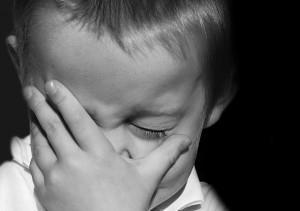Eating Disorder Recovery: Overcoming Denial of Your Past
 Individuals with an eating disorder or disordered eating are often unaware of the source of their pain. In order to begin the recovery process, they first must discover the wellspring of pain from the past. Denial is a significant detour in that quest.
Individuals with an eating disorder or disordered eating are often unaware of the source of their pain. In order to begin the recovery process, they first must discover the wellspring of pain from the past. Denial is a significant detour in that quest.
There are two kinds of denial. The first is your own denial of what has happened to you. This may take the form of doubting that what you remember ever took place. Because the abuse has been denied, it may take on an unreal quality when remembered. Almost as if it happened to someone else. If the abuse is remembered, it is often seen through the prism that “explains” why the abuse was not really abuse after all.
Denial enters through self-talk. These are the messages repeated over and over to ourselves as we try to deal with the pain and our relationship with food. Thoughts of “nobody’s home is perfect” or “it could have been worse” or “it wasn’t that bad” or “there’s nothing I can do about it now” allow you to minimize the damage. “I should be strong enough to deal with this on my own” or “everyone turns to food when they’re down” increases frustration at the inability to bring the eating disorder or disordered eating under control.
But denial, this minimization of the pain, is merely a coping mechanism to keep the pain at bay. Denial is the ticket that allows you to transform life-altering pain into that limbo state of “not that bad.” If it is “not that bad,” you believe you can find the strength to go on.
The other form of denial comes from the person or people who hurt you. They may deny that the abuse ever took place or that there was not anything wrong with it if it did. He or she may accept that the event or events happened but deny responsibility or minimize the damage. This can happen regardless of the nature of the abuse. Whether the piece was a single, specific event, or a pattern of hurtful behavior carried over out a number of years, this person may refuse to accept the ramifications of his or her actions.
This person may even attempt to make you feel responsible for the abuse itself or responsible for your “version” of the events. They may deny the damage by calling into question your natural response to the damage. It is to his or her benefit that denial goes both ways—their denial of the event and your denial of the damage done. They may resist acknowledging your eating disorder or the place food now has in your life, because acknowledgment means recognizing the abuse or pattern of hurtful behavior behind it.
So the responsibility for the abuse itself and the resulting eating disorder could be shoved back at you, increasing stress surrounding your eating disorder or pattern with you, escalating its progression. As this escalates, it becomes easier to focus your attention solely on its progress, diverting attention from the root cause.
The desire to go back and rewrite your past is seductive, especially if your past was one of the abuse and pain. Denial allows you to do just that. Denial takes the pages of your past and alters them according to “if onlys,” or it substitutes blank pages for the pain that is really there.
A familiar proverb assures us that those who refuse to learn the lessons of history are doomed to repeat them. You can also be said that those who deny the events of their own history are doomed to relive them. To deny abuse is to perpetuate it. The only way to stop the chain of abuse is to stop denying the truth of that abuse.
Each of us is the product of our experiences, and not one of us is immune to the pain they have cost us. We may not be able to control what happened to us, but we can control who we become as a result of those past events.
First, however, we need to look at those experiences honestly. The light of reality can seem harsh and bright to those who have been hiding from the truth. Clarity and detail spring forth from the light of truth.
http://www.caringonline.com/our-blog/overcoming-denial-of-your-past/
Excerpts taken from Gregory L. Jantz, Hope, Help & Healing From Eating Disorders: A Whole-Person Approach To Treatment of Anorexia, Bulimia, and Disordered Eating, WaterBrook 2010.
